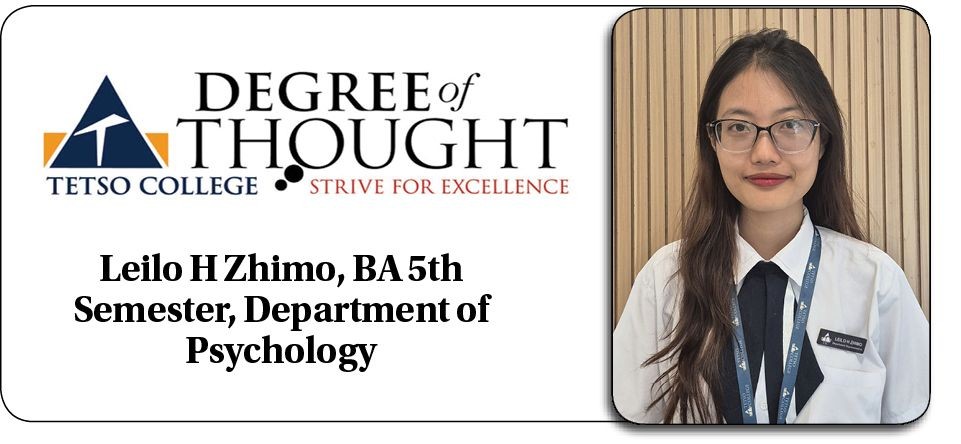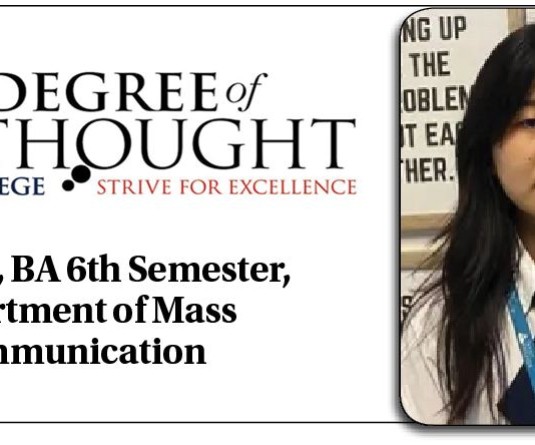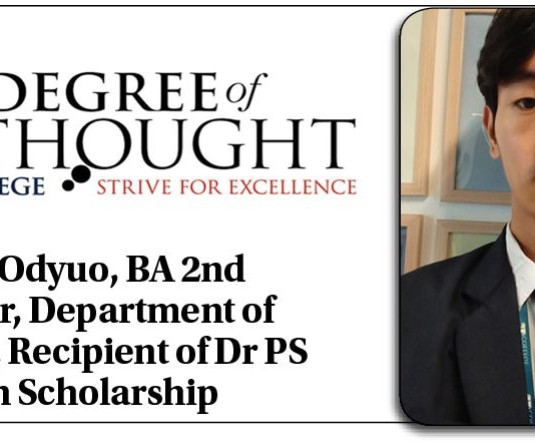
“Where should a family turn when suffering doesn’t fit neatly into one box, when it feels both spiritual and psychological at the same time?”
This was the dilemma I witnessed during my internship. A young man, once a student, gradually lost his way while struggling with depression. His search for answers led him into the teachings of a group that promised spiritual solutions but instead deepened his confusion. What began as hours of watching videos turned into years of obsession, withdrawal, and violent outbursts.
His family first sought prayer, believing his struggles were spiritual. When that didn’t work, they turned to psychiatric care, where doctors prescribed medications. Yet neither faith alone nor professional treatment alone seemed to bring him relief. I watched his guardians stand in anguish, unsure whether to rely on prayer or medical care, torn between two worlds.
That experience made me realise: healing cannot always be found in only one path. Sometimes, faith offers strength where psychology cannot, and psychological care provides tools where faith cannot. Together, they may give a more complete form of support. This client’s journey taught me that when faith meets psychology, the result is not contradiction, but possibility.
Mental health struggles are rarely simple. Yet in many communities, they are often framed in only one way either as a spiritual crisis or as a medical disorder. Families may rush their loved ones to prayer centres, convinced that the problem is spiritual, while others place complete faith in hospitals, relying solely on medication. What is often overlooked is that healing can require both. When awareness is missing, treatment is delayed, and it is the patient who pays the greatest price.
This lack of awareness creates a dangerous imbalance. When spirituality is overemphasised, people may neglect professional care that could stabilise their condition. When psychology is seen as the only solution, the comfort and strength that faith can provide may be dismissed. In both cases, individuals feel unseen, trapped between worlds that refuse to meet.
The consequences of this divide are heartbreaking. Lives are lost when treatment comes too late. Conditions worsen when families cycle through one failed attempt after another. Some patients never receive the care they deserve, while families are left exhausted by financial strain, stigma, and guilt. Beyond the family, entire communities lose out on the potential of individuals who might have thrived with the right support.
But there is hope. Change begins with awareness. Conversations about mental health need to become part of everyday life in our homes, schools, and religious spaces. Faith leaders and mental health professionals can build bridges instead of walls, working together to guide families on when prayer brings comfort and when professional help is essential.
Practical steps matter too. Workshops and awareness campaigns can teach people to recognise early warning signs of mental illness, encourage therapy, and show how faith can coexist with psychological care. Families can be empowered to seek accurate information and reach out for help without shame. On a personal level, each of us can make a difference by listening without judging and treating those who suffer with dignity.
For change to become real, our systems must evolve. Colleges, workplaces, churches, and hospitals need to create collaborative models of care instead of functioning in isolation. Imagine counsellors and pastors sitting together with families, forming a shared plan rather than offering conflicting advice. Crisis centres could include chaplains alongside trained therapists, giving individuals the choice to express both emotional and spiritual needs. When institutions acknowledge the complexity of suffering, they stop forcing people into categories and instead respond to the whole person. This integrated approach could prevent countless cases from escalating into crisis by offering support early and holistically.
Real transformation also requires courage. It means challenging harmful beliefs that equate mental illness with weakness, sin, or failure. It means families choosing understanding over shame, and communities choosing compassion over silence. For the next generation, let us build a culture where asking for help is seen as a strength, not an embarrassment. Let us teach our children that faith and science are not enemies but allies in the pursuit of healing. When we normalise conversations about mental health, we create safe spaces where suffering can be seen, supported, and healed before it becomes irreversible.
Ultimately, healing should not be viewed as an either/or proposition. It is not about choosing between faith and psychology, but about seeing them as partners. Recovery isn’t just about fixing the illness; it’s about caring for the mind, the spirit, and the person as a whole. When we embrace both, we open the door to a more balanced, compassionate, and effective path toward healing.
Degree of Thought is a weekly community column initiated by Tetso College in partnership with The Morung Express. Degree of Thought will delve into the social, cultural, political and educational issues around us. The views expressed here do not reflect the opinion of the institution. Tetso College is a NAAC Accredited UGC recognised Commerce and Arts College. The editorial team includes Chubamenla, Asst. Professor Dept. of English and Rinsit Sareo, Asst. Manager, IT, Media & Communications. For feedback or comments please email: dot@tetsocollege.org






